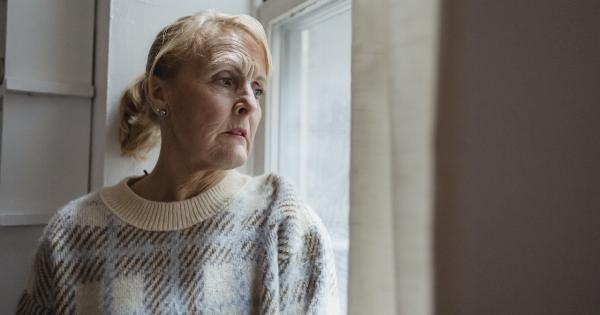Depression is a serious mental health condition that affects a significant number of older adults. According to the World Health Organization (WHO), depression is the leading cause of disability among people aged 60 years and above.
Causes of Depression in Older Adults
Depression in older adults can occur due to a variety of factors, including:.
- Loss of a spouse, family members or friends
- Chronic pain or illnesses
- Financial difficulties
- Retirement or loss of employment
- Isolation and loneliness
- Side effects of medications
Signs and Symptoms of Depression in Older Adults
It is important to be aware of the signs and symptoms of depression in older adults. These include:.
- Feelings of sadness, hopelessness, or helplessness
- Loss of interest in activities they once enjoyed
- Changes in appetite or weight loss/gain
- Insomnia or excessive sleeping
- Feeling fatigued or without energy
- Difficulty concentrating, making decisions, or remembering things
- Unexplained physical symptoms such as headaches or back pain
Treatment Options
Depression is treatable, and there are several options available for managing depression in older adults:.
- Medication: Antidepressant medications can be prescribed by a doctor to help alleviate symptoms of depression. It is important to note that some older adults may experience side effects or interactions with other medications, so it is crucial to discuss these options with a doctor.
- Psychotherapy: Talk therapy with a trained therapist can help older adults process their feelings, develop coping strategies, and identify problem areas that may be contributing to their condition.
- Self-care: Older adults can practice self-care techniques such as exercise, eating healthy, and getting enough sleep to improve their mood and alleviate symptoms of depression.
- Support groups: Joining a support group can help older adults connect with others who are going through similar experiences and provide a sense of community and understanding.
Preventing Depression in Older Adults
Here are some ways to prevent depression in older adults:.
- Stay physically active: Exercise can help improve mood and reduce symptoms of depression.
- Spend time with loved ones and friends: Social support can help prevent feelings of isolation and loneliness.
- Engage in activities that bring happiness and pleasure: Hobbies and other enjoyable activities can help prevent depression and boost mood.
- Manage chronic illnesses: Proper management of chronic illnesses can help prevent depression.
Conclusion
Managing depression in older adults is crucial for maintaining a good quality of life. With proper treatment, self-care, and support, older adults can successfully manage depression and improve their overall well-being.




























